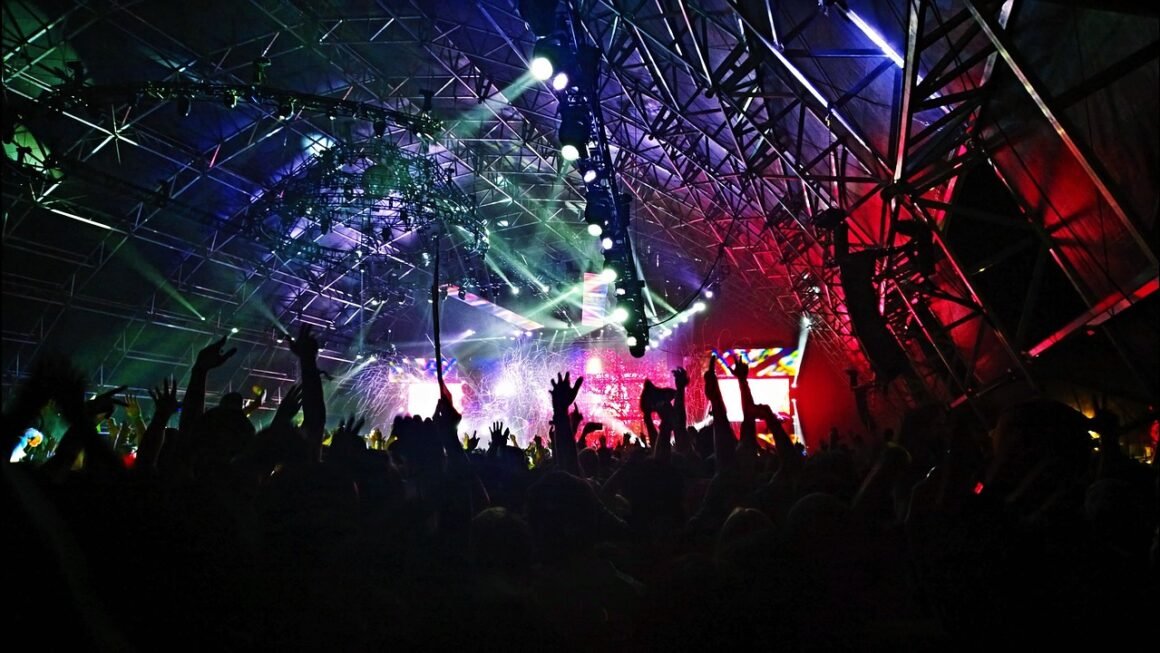The hushed anticipation, the velvet curtains, the electrifying energy that crackles through the air – there’s nothing quite like experiencing live theater. From the grand spectacle of Broadway to the intimate charm of a local playhouse, theater offers a unique and powerful way to connect with stories, emotions, and the shared human experience. This blog post dives deep into the world of theater, exploring its rich history, diverse forms, and enduring appeal.
A Timeless Art Form: The History of Theater
Ancient Roots
The origins of theater can be traced back to ancient Greece, around the 6th century BC. These early performances were often religious rituals honoring the god Dionysus, the god of wine and fertility.
- Greek Tragedy: Playwrights like Sophocles (Oedipus Rex) and Euripides (Medea) explored themes of fate, morality, and the human condition. Tragedies were characterized by their serious tone, tragic heroes, and often a chorus that commented on the action.
- Greek Comedy: Aristophanes, known for works like Lysistrata, used comedy to satirize politics, society, and even the gods. Comedies were often bawdy and irreverent.
- Roman Adaptations: The Romans adapted Greek theatrical traditions, focusing more on spectacle and entertainment. Playwrights like Plautus and Terence produced comedies that were popular throughout the Roman Empire.
Medieval Theater
After the fall of the Roman Empire, theater experienced a period of decline, but it was revived during the Middle Ages, primarily by the Church.
- Liturgical Dramas: These plays were performed within churches and depicted biblical stories. They were initially sung or chanted in Latin.
- Mystery Plays and Miracle Plays: As theater moved outside the church, these plays developed, telling stories from the Bible (Mystery) and the lives of saints (Miracle). They were often performed in town squares and involved elaborate sets and costumes.
- Morality Plays: These plays, such as Everyman, used allegorical characters to teach moral lessons. They explored themes of good versus evil and the importance of salvation.
Renaissance Theater
The Renaissance saw a resurgence of interest in classical literature and art, leading to a golden age of theater, particularly in England.
- Shakespearean Theater: William Shakespeare, arguably the most famous playwright of all time, produced a vast body of work, including tragedies (Hamlet, Macbeth), comedies (A Midsummer Night’s Dream, Twelfth Night), and histories (Richard III, Henry V). His plays explored universal themes of love, ambition, revenge, and mortality.
- The Globe Theatre: The Globe, where Shakespeare’s plays were performed, was a large, open-air theater that could accommodate thousands of spectators. Audiences were diverse, ranging from wealthy nobles to commoners.
- Commedia dell’Arte: This Italian form of theater used masked characters and improvisation to create comedic performances. It influenced theater across Europe.
Exploring Different Genres and Styles
Musical Theater
Musical theater combines music, song, spoken dialogue, and dance to tell a story. It’s one of the most popular and commercially successful forms of theater today.
- Golden Age Musicals: Musicals like Oklahoma!, The Sound of Music, and West Side Story are considered classics of the genre, known for their memorable songs, compelling stories, and elaborate production values.
- Contemporary Musicals: Modern musicals like Hamilton, Wicked, and Dear Evan Hansen explore diverse themes and musical styles, pushing the boundaries of the genre.
- Jukebox Musicals: These musicals are built around the songs of a particular artist or band, such as Mamma Mia! (ABBA) and Jersey Boys (The Four Seasons).
Drama
Drama encompasses a wide range of plays that deal with serious themes and conflicts.
- Tragedy: Tragedies often explore the downfall of a protagonist due to a tragic flaw or external forces. Examples include Death of a Salesman by Arthur Miller and Antigone by Sophocles.
- Comedy: While aimed at humor, comedies can also offer social commentary and explore human relationships. Examples include The Importance of Being Earnest by Oscar Wilde and Noises Off by Michael Frayn.
- Absurdist Drama: This genre, popularized by playwrights like Samuel Beckett (Waiting for Godot) and Eugène Ionesco (Rhinoceros), challenges traditional dramatic conventions and explores themes of meaninglessness and alienation.
Experimental Theater
Experimental theater seeks to break away from traditional forms and conventions, often incorporating multimedia, improvisation, and audience participation.
- Performance Art: This form of theater often blurs the lines between art and life, using the performer’s body as a medium to explore ideas and emotions.
- Immersive Theater: Immersive theater aims to create a fully immersive experience for the audience, blurring the lines between performer and spectator. Examples include Sleep No More and Then She Fell.
- Physical Theater: This form of theater emphasizes movement, gesture, and physicality over spoken dialogue. Companies like Pilobolus are known for their innovative physical theater productions.
The Benefits of Attending Live Theater
Emotional Connection
Live theater provides a unique opportunity to connect with stories and characters on a deeply emotional level.
- Empathy: By witnessing the struggles and triumphs of characters on stage, audience members can develop empathy and understanding for others.
- Shared Experience: Attending a live performance creates a shared experience with other audience members, fostering a sense of community.
- Catharsis: Theater can provide a cathartic release of emotions, allowing audience members to process their own feelings and experiences.
Intellectual Stimulation
Theater can challenge our thinking and provide new perspectives on the world.
- Critical Thinking: Many plays explore complex themes and social issues, prompting audience members to think critically about the world around them.
- Historical Awareness: Historical dramas can provide insights into different periods of history and culture.
- Cultural Understanding: Theater can expose audiences to different cultures and perspectives, promoting understanding and tolerance.
Entertainment and Escape
Theater can provide a welcome escape from the stresses of everyday life.
- Live Performance: The energy and excitement of a live performance are unmatched by any other form of entertainment.
- Creative Expression: Theater allows artists to express their creativity and share their vision with the world.
- Unique Experience: Each performance is unique, making every theater experience special and memorable.
Getting Involved in Theater
Attending Performances
The easiest way to get involved in theater is to attend performances.
- Support Local Theater: Attend performances at local theaters and support local artists.
- Explore Different Genres: Don’t be afraid to try different genres and styles of theater.
- Read Reviews: Read reviews of plays before attending to get an idea of what to expect.
Volunteering
Many theaters rely on volunteers to help with various tasks.
- Ushering: Help audience members find their seats and provide assistance.
- Box Office: Sell tickets and answer questions about performances.
- Backstage: Assist with set construction, costumes, and props.
Performing
If you’re interested in performing, there are many opportunities to get involved in community theater.
- Audition: Attend auditions for local theater productions.
- Take Acting Classes: Improve your acting skills by taking acting classes.
- Join a Theater Group: Join a local theater group to connect with other theater enthusiasts.
Conclusion
Theater, with its rich history and diverse forms, remains a vital and relevant art form in the 21st century. From the emotional connection and intellectual stimulation it provides to the entertainment and escape it offers, theater has something to offer everyone. Whether you’re a seasoned theatergoer or a curious newcomer, explore the world of theater and discover the magic that awaits you. So, go ahead, find a local show, and experience the power of live performance firsthand!



